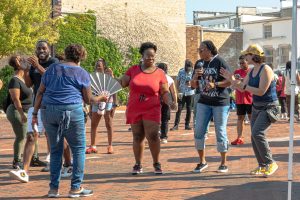Plan causes confusion
October 19, 1990
SPRINGFIELD—The Board of Regents remain confused about talk of a statewide work-study program.
Charles Morris, Regents interim vice chancellor for Academic Affairs, told the Regents Thursday that part of Chancellor Roderick Groves’ report on the work-study was incorrect because no official proposal has been made.
epresentatives from the three Regency schools—which include NIU, Illinois State University in Normal and Sangamon State University in Springfield—agreed to put their thoughts and suggestions on paper to be submitted to Groves, who will pass the documents to the Illinois Board of Higher Education. The IBHE is scheduled to consider the plan at its December meeting.
The board members are confused whether the program is dubbed correctly as a “work-study” because they associate it with financial aid, whereas a cooperative education program, which the plan resembles, is not.
“It’s gotten all mixed up by combining those two concepts,” Groves explained.
Despite the confusion, many remain opposed to the apparent proposal, which is intended to reduce reliance on student loans, enhance public and private resources, compliment academics and encourage social service activities.
The opposition rises from questions of funding. ISU President Thomas Wallace said the program probably would push a tax hike, although “nobody wants to go first because they don’t want to take the heat. All of this is nice, but it’s not needed.”
The Regents also feel the program would compete for money against the Monetary Award Program, which they say is unable to fund thousands of students and could use $26 million to fund the needier ones.
But ISU student Regent Timothy Schurman said there are many middle-class students who could benefit from the program. “There’s a large number of students who can’t fund their educations,” he said.
However, SSU Student Regent James Smylie said he fears the proposal will pit needy students against others.
NIU President John La Tourette told the Regents that about 2,000 NIU students participate in some sort of student employment, with around half of those in traditional work-study tracks like food service.
Barbara Henley, vice president for Student Affairs, said the proposed program, which encourages students to work in a job related to their chosen fields of study, would hurt food serivce because “most are not endeavoring to work in food service.”






